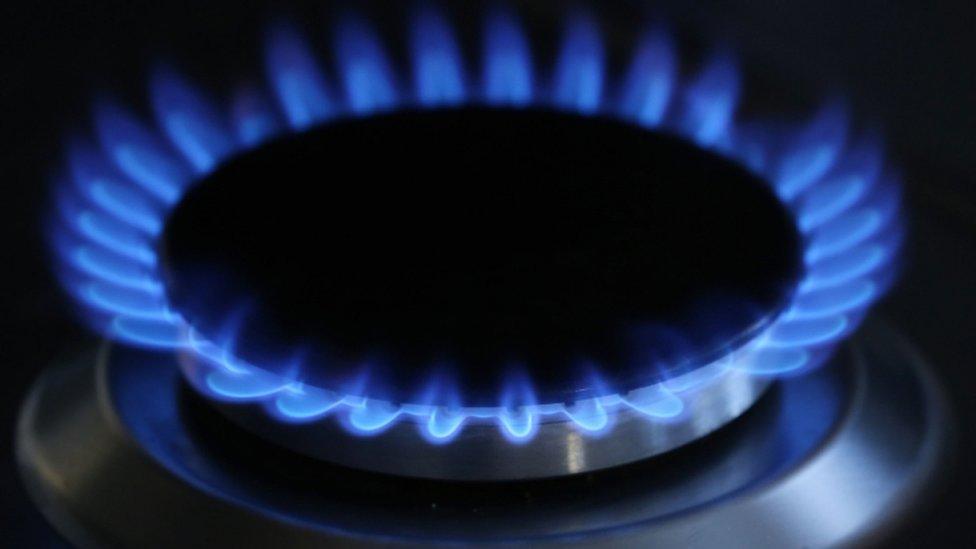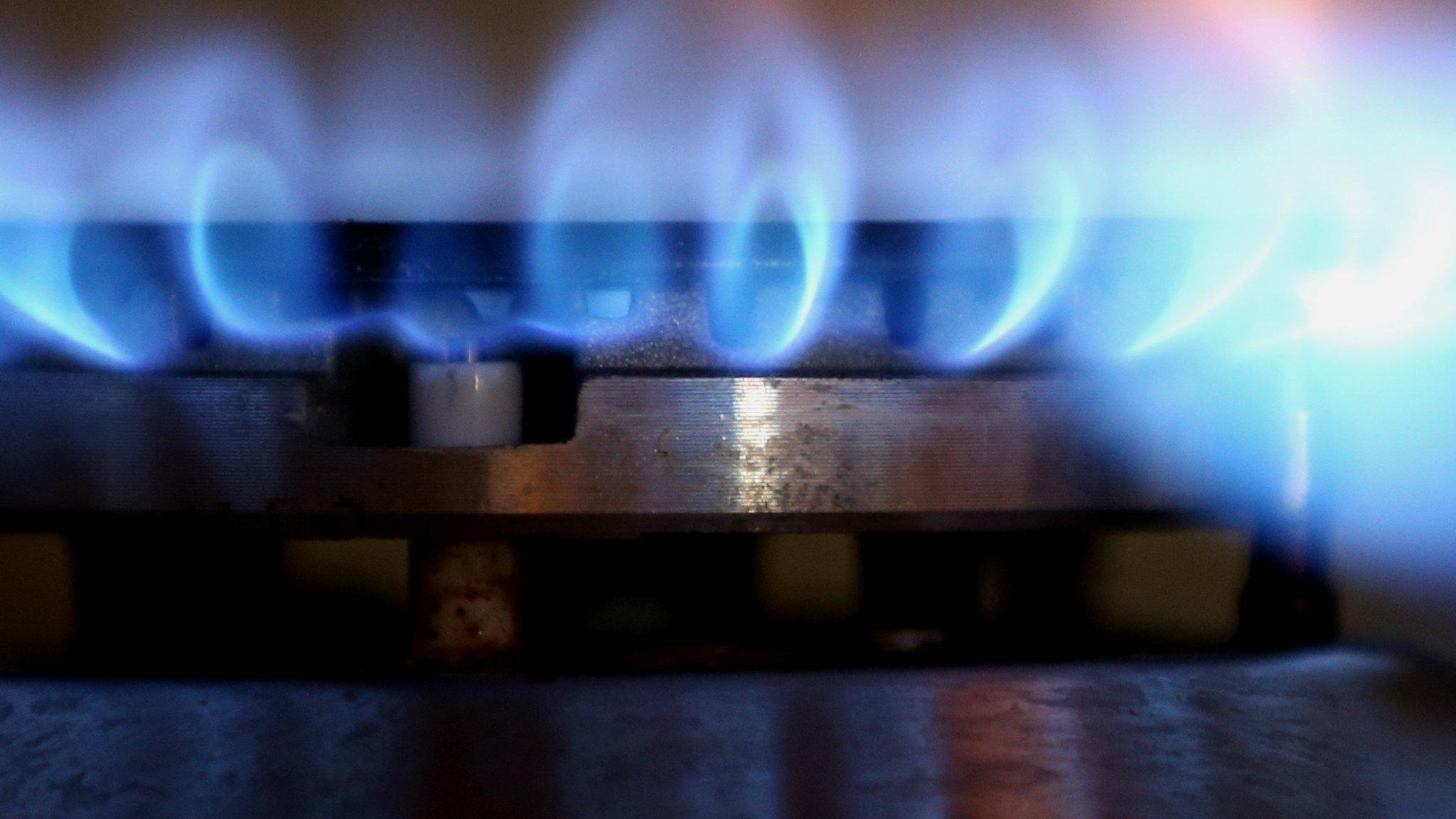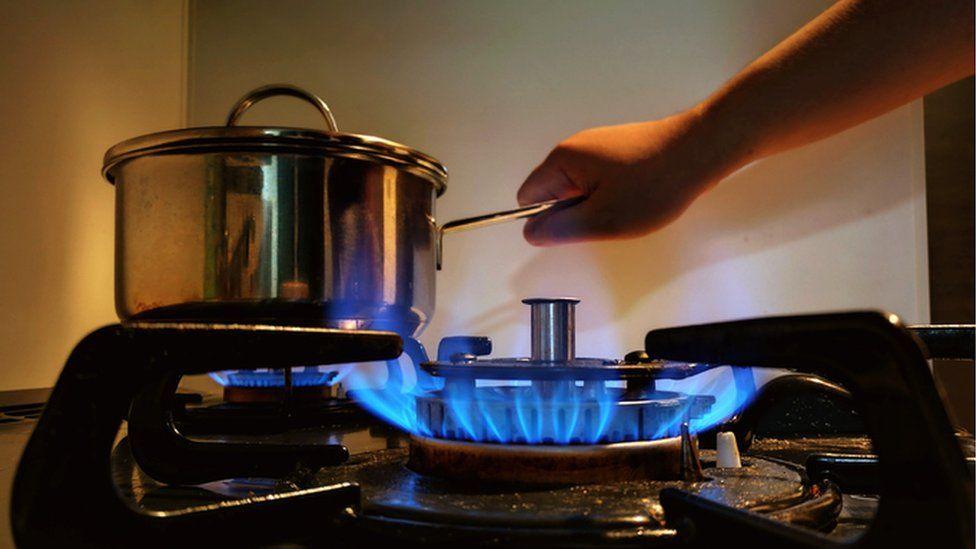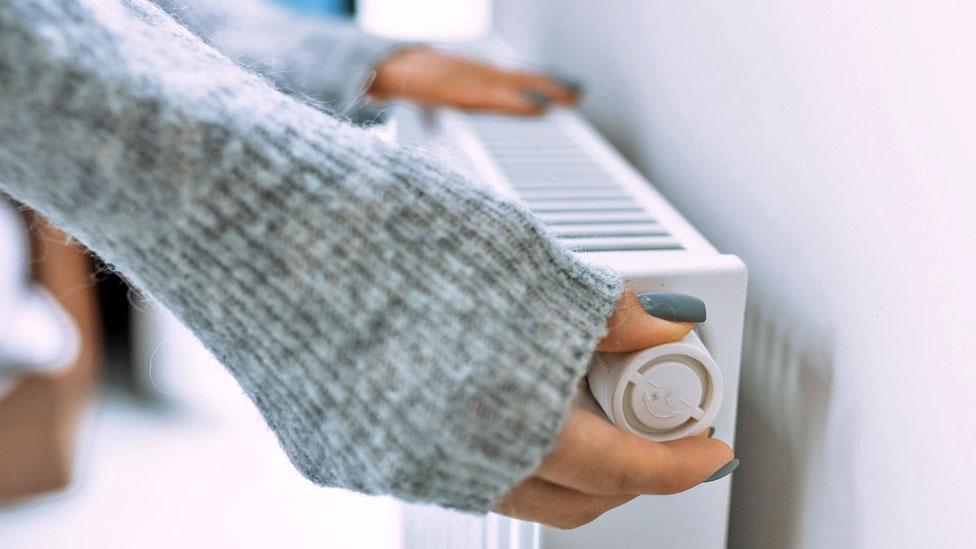NI energy firms agree to support households struggling to pay
- Published

Northern Ireland's gas and electricity suppliers have signed up to a voluntary energy charter
Northern Ireland's gas and electricity suppliers have signed up to a voluntary energy charter aimed at helping households who are struggling to pay.
It has been developed in association with the Utility Regulator and the Consumer Council.
The measures include making a contribution to a hardship fund.
The regulator, John French, said the charter would "provide practical and tangible support to vulnerable consumers this winter".
He said it had been worked on for some time and also involved input from the departments for the economy and communities.
Other measures in the charter include improving the debt repayment terms for pre-payment customers.
Indebted customers who have been moved onto pre-payment are expected to pay off some of what they owe when buying a gas or electricity top-up.
Currently a supplier can deduct up to 40% from a purchase of electricity or gas to reduce debt.
However, by signing up to the charter, suppliers have agreed to halve that figure to 20%.
There is also a guarantee that households will not be moved onto a pre-payment meter over the Christmas period, unless they request it.
This comes after the Irish government introduced a new windfall tax on non-gas electricity generators in the Republic of Ireland to help protect households against rising costs.

Peter McClenaghan from the Consumer Council said most households will pay higher prices this winter
Peter McClenaghan, the Consumer Council Director of Infrastructure and Sustainability, said even with the financial support announced by the UK government, most households will pay higher prices this winter than last winter.
"As consumers are paying very high prices for energy, and many of us are really struggling as a result, the Consumer Council welcome the voluntary agreement of local suppliers to put in place this extra support this winter," he said.
"We will support suppliers to ensure these tangible, beneficial, and measurable commitments to their customers are delivered and will continue to work closely with the Utility Regulator to enhance consumer protection."
Related topics
- Published1 November 2022

- Published31 October 2022

- Published15 November 2022
